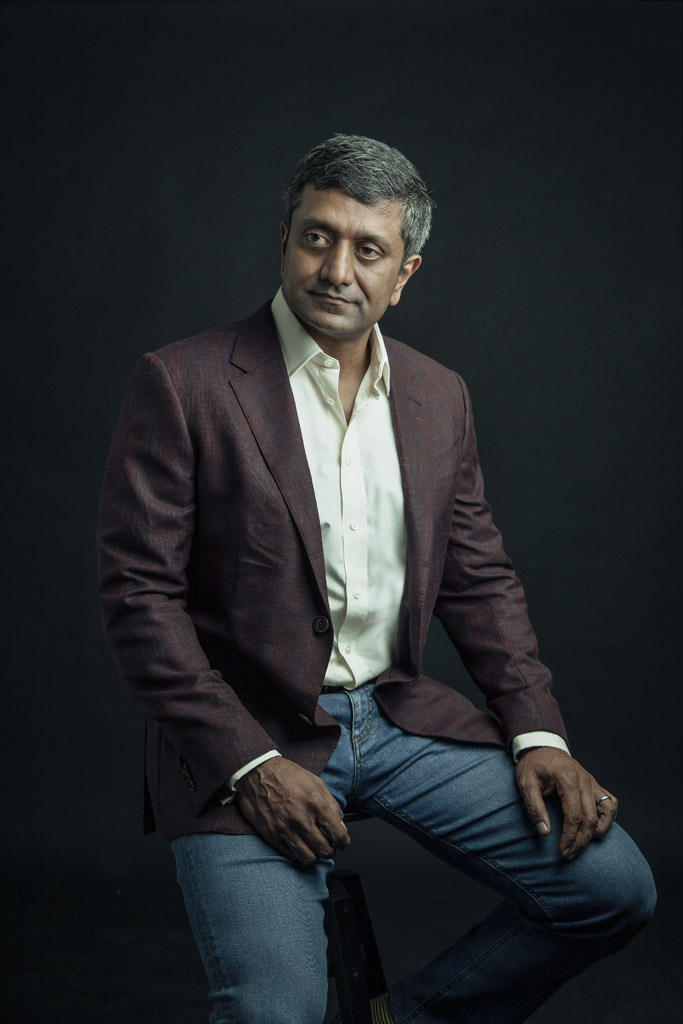Dr. Rohan Mahadevan, senior vice president for International Markets at PayPal, views customer financial health as integral to the company’s business. “Two years ago, we conducted an independent study and found out that a lot of people were interested in what we coined as ‘financial health’,” he shares. In the process of fulfilling its services, PayPal helps customers achieve financial health in three ways, Dr. Mahadevan says.
First, it reduces the cost of managing money by offering the convenience of a digital solution. “I was often late with my payments when I used to send out cheques,” he says, taking into account the tedious process and the penalties for delay. “Now that I have everything in digital, I can actually save money and meet payment deadlines.” PayPal, he adds, delivers the same benefits to its customers.
PayPal also helps cushion the impact of poor performance of a target market. “Imagine that you have only one market for your products; when that market slows down, your business affected.” By providing access to more markets anywhere in the world, PayPal helps merchants even out the effects of diminishing transactions by allowing them to focus on healthier markets.
Finally, PayPal helps create financial opportunities. “I have seen people turning hobbies into businesses. I met a 25-year-old woman in the Philippines who began selling t-shirts with her own designs when she was just 14 years old. She couldn’t open a PayPal account, and had to rely on her friend to accept payments.” This limited her market options and reach, he explains.
Today, Dr. Mahadevan says, the same entrepreneur runs a business employing 40 people, selling t-shirts to Europe and the US. “If she didn’t have PayPal to accept payments worldwide, she would be unable to grow her business,” he says. A timely replenishment of her working capital will be difficult.
Technology-driven global commerce continues on an upward trend with m-commerce giving it a boost. In 2017, worldwide retail e-commerce sales totalled $2.304 trillion, a 24.8 per cent increase year-on-year, according to eMarketer. Meanwhile, m-commerce during the same period accounted for 58.9 per cent of digital sales. In Asia Pacific the share of mobile in e-commerce sales grew to 76.1 per cent in 2017 from 70.3 per cent in 2016.
Growth forecasts remain optimistic: Compound annual growth rate (CAGR) for e-commerce is projected at 32 per cent, from $5.5 billion in 2015 to $88 billion in 2025. Meanwhile, m-commerce growth is forecast to hit $6 trillion by 2021, the eMarketer report says. PayPal Holdings, as a leading operator of global online payment system, will continue to benefit from the anticipated growth, and Dr. Mahadevan thinks ubiquity is a key factor.
A wide range of products helps ensure ubiquity. In Asia Pacific, PayPal covers the markets with PayPal.Me, One Touch, and Xoom. It offers Travel Cancellation Protection in Singapore, Express Checkout in Singapore and Thailand, PayPal.Me for Business in Singapore, Thailand and the Philippines, and Braintree in Singapore, Australia and India.
In the first quarter of 2018, PayPal processed approximately $49 billion in mobile payment volume, which represents a 52 per cent year-on-year growth. With growth hinged on m-commerce, it recently launched One Touch, its checkout experience that enables consumers to make payments without logging into PayPal or filling out billing information. The product was very well received that within a quarter following its release, 8.6 million merchants were offering it.
PayPal monetizes transaction processing by charging corresponding fees. It supports online money transfers as an electronic alternative to paper-based cheques and money orders. “When you go to a restaurant and give them your credit card, the staff swipes and the merchant, in this case the restaurant, pays the card company about two to four per cent of the transaction. In our case, we don’t charge any fixed fees, any upfront fees – you literally pay as you go. If you make one transaction you pay us anywhere from two to four per cent of the transaction. That’s our revenue. Given an annual transaction amounting to $451 billion – you look at about 3 per cent being the average take rate – that’s about $12 billion to $15 billion of revenue that we make,” Dr. Mahadevan illustrates.
“The opportunity is really to replace ‘cash’, and so we actually see this business is just starting—we are just getting started,” Dr. Mahadevan says. “Right now, the limit is digitization. Our CEO (Mr. Dan Schulman) said ‘we are about democratizing money’. Everybody needs to have the ability to access and move money at the lowest possible cost.” Cash remains dominant in everyday life, and the opportunity for a company like PayPal is in the digitization of cash. “The digitization movement is accelerating,” Dr. Mahadevan observes. “The Indian government went for demonitization two years ago, and the Singapore government is kind of pushing for digitization of cash pretty much everywhere. A lot of countries in Northern Europe have already obliterated the use of cheques.”
PayPal is also looking into adjacency expansions of other companies. “If we find synergies in what they are doing, we entertain the idea of acquiring them,” Dr. Mahadevan confirms. In the last quarter, PayPal made four acquisitions and multiple investments in company adjacencies. One such company is iZettle, which PayPal acquired for about $2.2 billion.
“They approach small businesses in countries in Europe and Latin America, and offer them offline devices to accept payments,” he elaborates. “They have a very clear plan for enabling easy card processing for people in store.” Following the acquisition, PayPal can now offer iZettle merchants integrated online products, including social media platforms. They can also offer their own predominantly online merchants an offline solution. PayPal gains access to iZettle’s distribution capability without building the platforms. “It helps us provide a portfolio of solutions to customer segments we’re targeting in a very thoughtful way.”












 Back
Back
